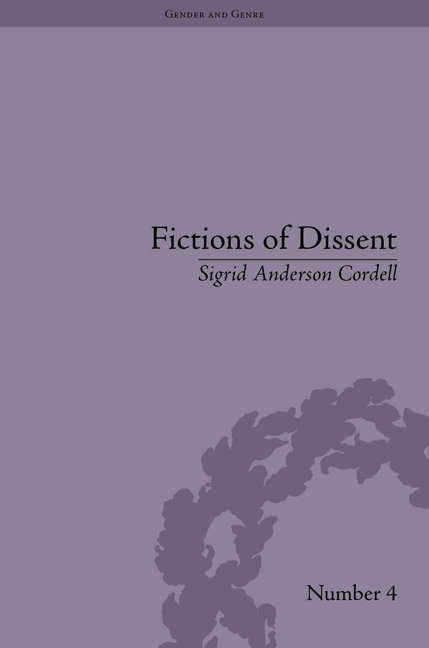 Fictions of Dissent
Fictions of Dissent Book contents
- Frontmatter
- CONTENTS
- Acknowledgements
- Introduction: The Muse's Revenge
- 1 ‘A Beautiful Translation from a Very Imperfect Original’: Mabel Wotton, Aestheticism and the Dilemma of Literary Borrowing
- 2 Vernon Lee and the Aesthetic Subject
- 3 Edith Wharton and the Artist as Connoisseur
- 4 The Aesthetics of Ownership in Women's Stories
- Notes
- Works Cited
- Index
Introduction: The Muse's Revenge
- Frontmatter
- CONTENTS
- Acknowledgements
- Introduction: The Muse's Revenge
- 1 ‘A Beautiful Translation from a Very Imperfect Original’: Mabel Wotton, Aestheticism and the Dilemma of Literary Borrowing
- 2 Vernon Lee and the Aesthetic Subject
- 3 Edith Wharton and the Artist as Connoisseur
- 4 The Aesthetics of Ownership in Women's Stories
- Notes
- Works Cited
- Index
Summary
In ‘A Lost Masterpiece’ (1894), which appeared in the first issue of John Lane's avant garde journal, the Yellow Book, ‘George Egerton’ (Mary Chavelita Dunne) offers a parodic view of a male aesthete in the throes of artistic creation. The unnamed narrator travels through London keeping track of his impressions for future literary use, and, as he does so, congratulates himself on his attentiveness to detail, as well as for his ability to recognize beauty in what might otherwise appear a bleak scene. His creative self is ‘very busy’, he announces, ‘now throwing out tender mimosa-like threads of creative fancy, now recording fleeting impressions with delicate sure brushwork for future work’. He imaginatively transforms the scene in front of him, so that even the weather-stained brick joints on the factories become ‘hieroglyphics, setting down for posterity a tragic epic of man the conqueror, and fire his slave; and how they strangled beauty in the grip of gain’. For him, London is a place where beauty has been ‘strangled’ and forgotten in the constant struggle for existence and material gain. As he observes the scene, he idealizes what he sees and imagines the scene transformed into a poetic masterpiece. With delight, he recognizes that a ‘precious little pearl of a thought was evolving slowly out of the inner chaos’ that could be developed into a literary work and begins planning to ‘transfer this dainty elusive birthling of my brain to paper’.
- Type
- Chapter
- Information
- Fictions of DissentReclaiming Authority in Transatlantic Women's Writing of the Late Nineteenth Century, pp. 1 - 22Publisher: Pickering & ChattoFirst published in: 2014
